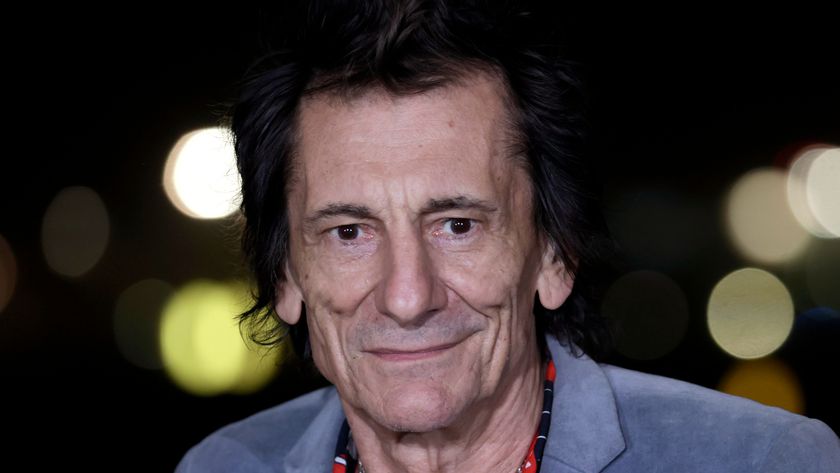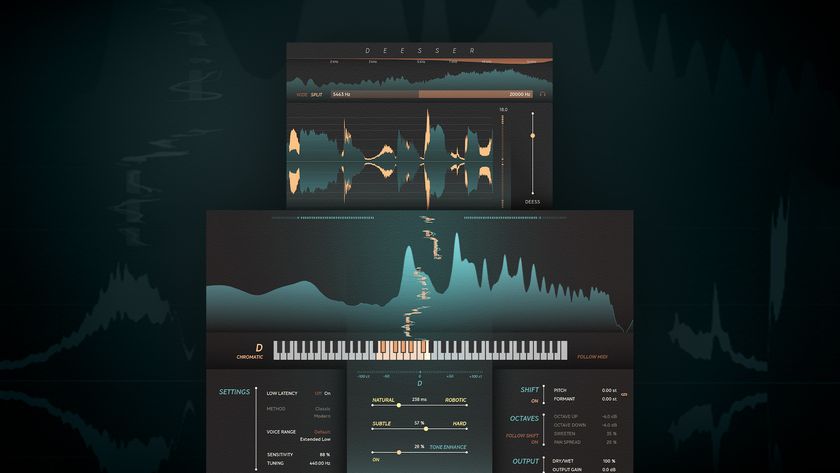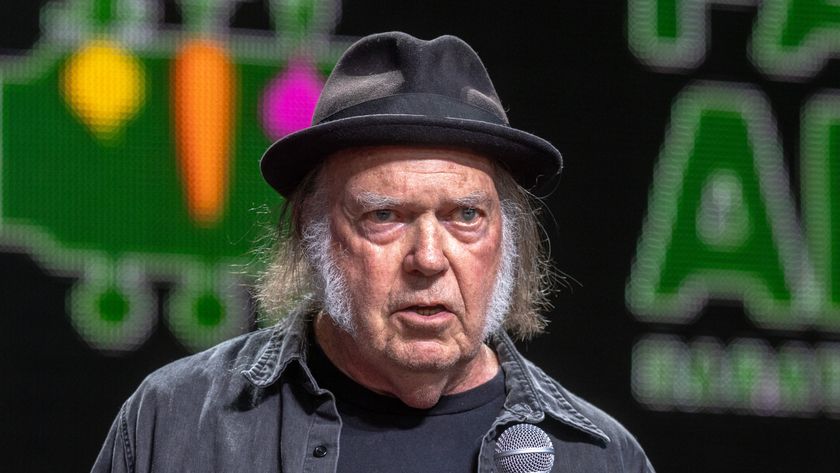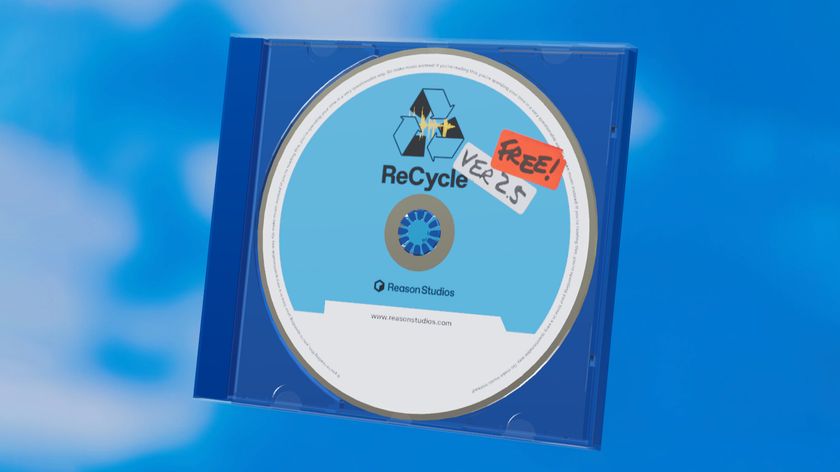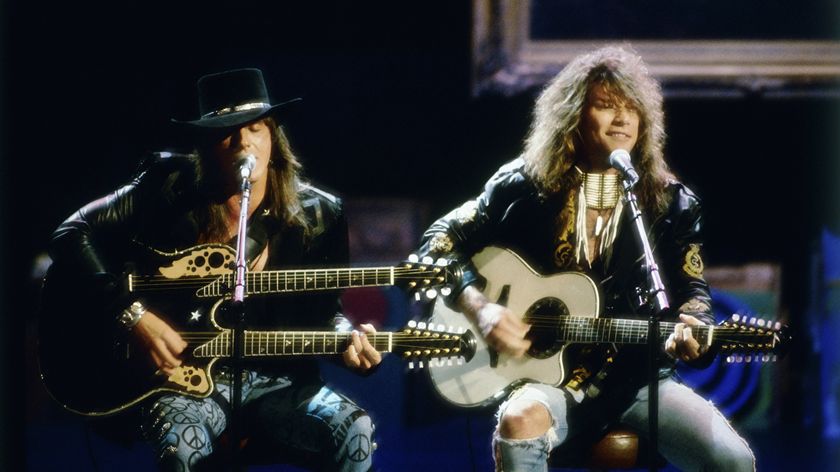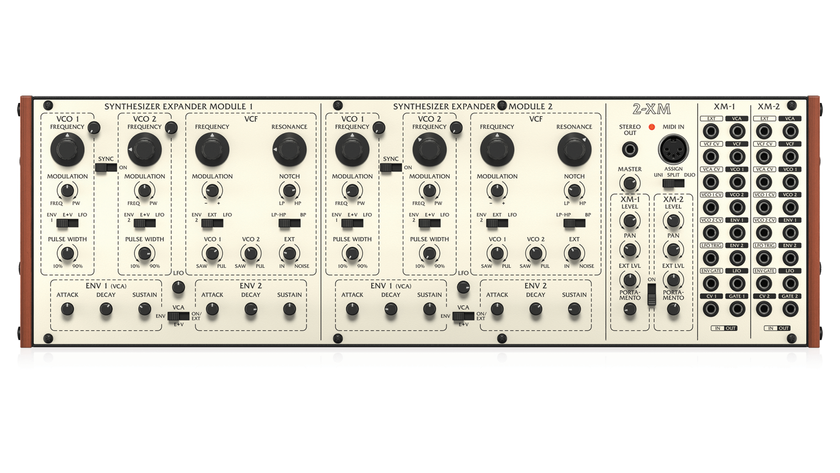
Andrew Loog Oldham: the 10 records that changed my life
In 1963, 19-year-old Andrew Loog Oldman discovered a scruffy, six-piece blues band and knew all the right moves to make (look sharp, guys; lose the piano player and write some songs). But more than just ideas, he had a vision. With Oldham guiding The Rolling Stones' ship, the '60s would not unfold as originally planned.
In April, Oldham, along with one of his biggest mentors, Beatles' manager Brian Epstein, will be inducted into the Rock And Roll Hall Of Fame. He's had a hand in making quite a few records that changed people's lives over the years, and on the following pages, Oldham talks about the 10 discs that shifted his senses all around.
“Growing up in England, radio wasn’t all that interesting. Because of the musicians unions, a great deal of what was played over the radio had to be live, and so you got these big bands trying to do Woody Herman, trying to do Glenn Miller, and only succeeding on a few occasions. We didn’t actually hear the original records. That came much later.
“However, when I was about 11, which would be in 1955, things started to seep through, and so you heard Johnny Otis doing Willie And The Hand Jive. But change came slowly.
“Getting records in those days, if you remove the technology, was similar to what’s happening now with the Internet. We had to go to the record shop, of course, but once there we’d go into these listening booths and listen to records before we bought them. The only problem was, you could only hear so many records before somebody would come up to you and say, ‘Are you gonna buy something, or what?’
“I do have issues with the fact that music is so accessible nowadays. When I was growing up, we had to find our music; we had to fight for it. But hey, you live in the age that you’re born in, and you get on with it.
“I get to listen to a lot of this music again doing my DJ work on Little Steven's Underground Garage. To hear Van on Them's It's All Over Now, Baby Blue – what a vocal, and what an arrangement. Also, I get to hear so many records that I missed the first time around – The Chocolate Watchband, Roky Erikson. It's an audio food fest, a total privilege, a second chance.”
Photo © Betina La Plante.
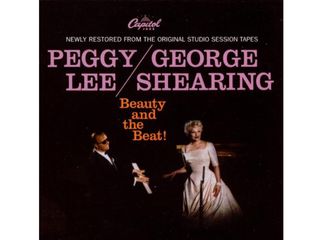
Peggy Lee/ George Shearing - Beauty And The Beat (1959)
“I was living in Hampstead. I was 11, and a guy next door named Bob decided to save my soul from skiffle and early rock ‘n’ roll. He had an amazing jazz collection across the board, not just trad jazz.
“Beauty And The Beat stood out. That live feel – it took the little kid in me to Chicago, where it was recorded; it gave me wings. Bob also introduced me to Ahmed Jamal, Gerry Mulligan, Bob Brookmeyer and Miles Davis. Those album covers were great – wonderful introductions to great suits, roll-collar shirts, Slim Jim wool ties. And the attitude!
“The second record I remember most out of Bob's effort to save me was a 10-inch album by the Hi-Lo's. Maybe Brian Wilson heard the same record.
"Lou Adler told me a few years ago, when we were picking music for a soundtrack, that the recorded piano style of George Shearing influenced him when recording Carole King.”
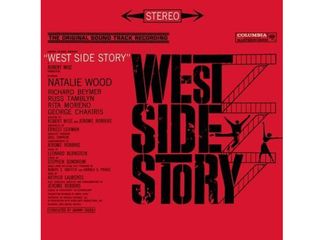
West Side Story - Soundtrack (1961)
“Again the imagination – the wings it gave my mind. You have to remember how drab the UK was post-World War II. We had rationing; the money had gone to rebuild Germany. But, of course, we would get the music. West Side Story was unreal, a pre-Tommy Tommy, if you will, because at that time our gangs, our Teddy Boys, had not yet found the voice that Quadrophenia would later give our unsettled youth.
“John Osborne's play Look Back In Anger may have been about the people, but it was not for the people – they could not afford the ticket prices. Look Back In Anger was for rich bums who wanted to gloat in the comfort of the stalls for a couple of hours, rather like August Wilson's stuff later on Broadway.
“West Side Story was a revelation – the music, the foundation, the musical ideas that would engage rock in the ‘70s when it got bored with the core and started to branch out. And Rita Moreno! And George Chakiris! God bless Lenny, Stephen, Billy Shakespeare, and the Sharks and Jets.”
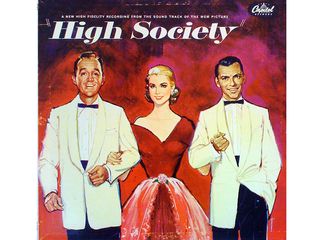
High Society - Soundtrack (1956)
"High Society just appealed to my love of show business and song at the time. I realized how song could change the drab life. Bing and Frank, Bing and Louis Armstrong. Now You Has Jazz…
“True Love from Bing Crosby and Grace Kelly – pure sexual magic. That skirt in the boat. The song, the bridge – that song and that performance made me know later I could, I should, record Marianne Faithfull.”
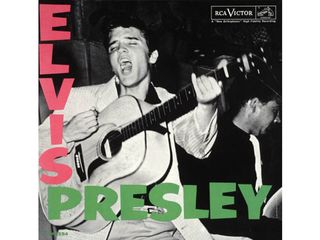
Elvis Presley - Elvis Presley (1956)
"The King! After the possibilities veiled and sobbed by Johnny Ray, we finally had our king – not a one-shot wonder, not the overnight fluke our peers and much of the record business hoped he would be.
“American song gave us Brit kids our own language. The imagery of Heartbreak Hotel, Jailhouse Rock, Be Bop A Lula, Walking To New Orleans and Rip It Up was magic to our ears and gave us our very own mental audio-visual channel.
“I remember the photo of Elvis and Natalie Wood – so sexy! Our generation’s version of Mick and Bianca. Back to Elvis – you heard the room on this platter, just like I did with George Shearing and Peggy Lee. The room sound had an incredible presence. You were in the room.”
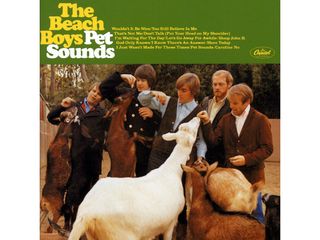
The Beach Boys - Pet Sounds (1966)
“Pet Sounds was the guv'nor. Just when we thought we'd said it all, Brian Wilson came along with this and moved us forward. It remains a tremendous accomplishment.
“I remember Paul McCartney waiting in my house for Lou Adler to arrive from LA with an acetate of Pet Sounds that Brian Wilson had given to him for us. We shared the acetate – Paul had it one day, I had it the next. The size of the pitch we played on had changed forever.”
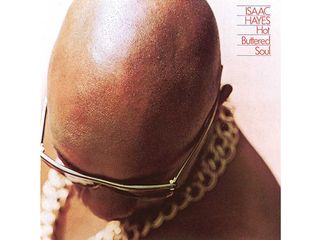
Isaac Hayes - Hot Buttered Soul (1969)
“Just when you thought you knew all there was to know about Walk On By and By The Time I Get To Phoenix, along comes Isaac Hayes with this oh-so-soulful and symphonic masterpiece. I had to sit down for this one. Just amazing.”
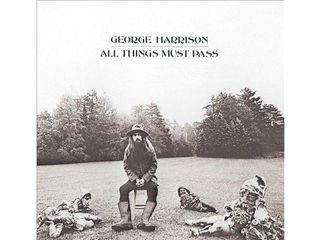
George Harrison - All Things Must Pass (1970)
“Who'd have thought it? ‘The quiet one’ strikes back – with Phil Spector and all those great songs. I had to stay at home for this one. I listened to it for three days running. So many layers, so much simplicity – so much truth!
“Of course, by the last three records and the next ones, we were under the influence of that ol' devil weed – that helped them make it and us take it.
"I took the Liverpool Beatles bus tour recently. For whatever reason, I expected Ringo's house to be the poorest – it might have been – but George's was the darkest, the most depressing… in a cul-de-sac. All Things Must Pass, indeed. George – finally a long-distance runner on his own.
“I saw Ringo on that Produced By George Martin thing. He said to George that he really didn't think a group had any business staying together for more than eight years. He has a point. You know, we expected Paul and John to deliver solo, but George and Ringo were the real dark horses, and boy, could they run!”
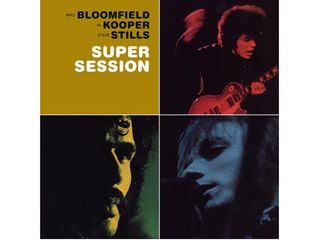
Michael Bloomfield/ Al Kooper/ Stephen Stills - Super Session (1968)
“The next two are game-changers – and what basic grooves. Season Of The Witch is forever amazing, just like a tailor turning your regular suit, or song, into David Byrne. Not that there was anything regular about the original Donovan recording – that was ultra special.”
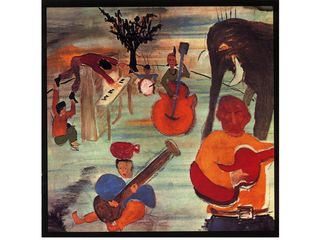
The Band - Music From Big Pink (1968)
“The Band were amazing. This was another change-the-rules proactive recording that worked within the system and served both us and the beast. Because by now the beast was smokin', too – well, maybe not Clive. I am not advocating pot for the masses, because pot today is very different from the pot of our day. It is a chemical, as is wheat, as is chicken, as is life.
“The Band stood by their music, and amazingly, the graphics of their album spelt that right out. The thing I loved about album covers was that you had the opportunity to represent the music. When I first read Nat Hentoff's liner notes for Bob Dylan on that first or second album, I knew that we had a bigger playground to sulk in. The Band and Music From Big Pink were our Grapes Of Wrath.”
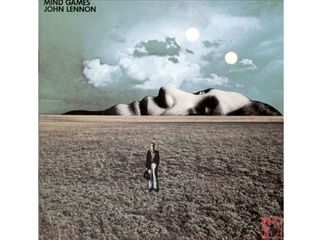
John Lennon - Mind Games (1973)
“I'm not going with the obvious Lennon – the brilliance of Happy Xmas (War Is Over), Imagine, Mother and Gimme Some Truth.
“I lived in New York when John Lennon did, and Mind Games reminds me of that time. We were comfortable with the brittleness, the jagged edge of the city, the medicated scream of anguish and pleasure. It was such a pleasure to have ended up in New York City. It fit, it worked, it understood – and John Lennon captured that moment on this record. Mind Games is the ‘70s audio version of wheat grass.”

Joe is a freelance journalist who has, over the past few decades, interviewed hundreds of guitarists for Guitar World, Guitar Player, MusicRadar and Classic Rock. He is also a former editor of Guitar World, contributing writer for Guitar Aficionado and VP of A&R for Island Records. He’s an enthusiastic guitarist, but he’s nowhere near the likes of the people he interviews. Surprisingly, his skills are more suited to the drums. If you need a drummer for your Beatles tribute band, look him up.

"Reggae is more freeform than the blues. But more important, reggae is for everyone": Bob Marley and the Wailers' Catch a Fire, track-by-track

“Part of a beautiful American tradition”: A music theory expert explains the country roots of Beyoncé’s Texas Hold ‘Em, and why it also owes a debt to the blues

"Reggae is more freeform than the blues. But more important, reggae is for everyone": Bob Marley and the Wailers' Catch a Fire, track-by-track

“Part of a beautiful American tradition”: A music theory expert explains the country roots of Beyoncé’s Texas Hold ‘Em, and why it also owes a debt to the blues
